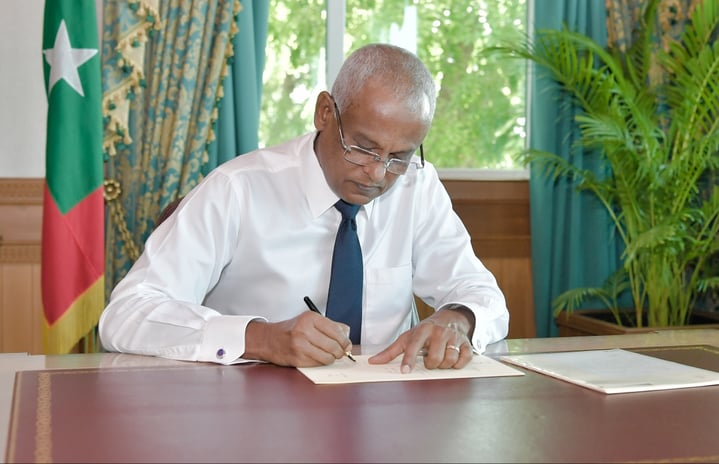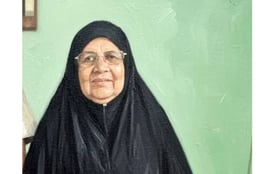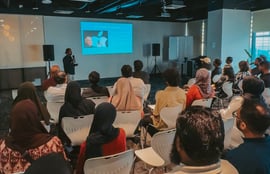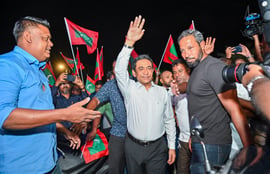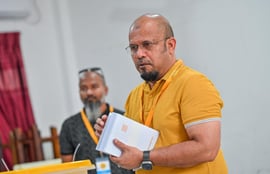President Ibrahim Mohamed Solih on Sunday ratified the sunset bill to postpone the local council and Women’s Development Committee (WDC) elections until the presently-declared state of public health emergency due to COVID-19 is over.
The bill entitled “The Special Bill for the Local Council Elections 2020" was passed by the parliament on April 30, after the Elections Commission (EC) submitted the matter to the parliament, seeking a legislative remedy to postpone the elections over public safety concerns.
Both local councils and WDC elections were initially slated for April 4 and later delayed to April 18. According to the new law, the local elections are now postponed until it is safe to hold nationwide polls.
The sunset Act will become invalid after elections are held and the newly elected councilors and Women’s Development Committee (WDC) members assume office.
Typically, sunset laws are temporary and cease to have an effect after a specific date, unless further legislative action is taken to extend the law. As per the new law, the local council and WDC elections must be held before January 6, 2021.
According to the law, the Elections Commission can only begin preparations for the local council and WDC elections once the presently-declared state of public health emergency is over and only after relevant authorities determine that there is no longer a public health risk to hold the elections. In preparation for the polls, the Elections Commission is required to update the voter registry, conduct re-registration and reallocation of ballot boxes.
With its ratification today, civil servants' previously suspended from their official duties for contesting in the local elections will be able to return to their employment. However, they will not be allowed to campaign until they are placed under suspension once again, when a date for the election is determined.
Despite the election delay, the new law states that candidates who have gone through the application process and were already approved for the April elections will be allowed to participate in the delayed polls. The new law also states that candidates who automatically stand to win their seats due to being the only contender will assume office, once the local elections are held, along with the newly elected members.
Meanwhile, the government had also submitted to the parliament amendments to the Constitution over the elections matter, seeking a constitutional remedy to extend current councillors’ term of office until new elections can be held. The tenure for councillors’ term in office is stipulated in the Maldivian Constitution, with presently elected councillors’ term ending on June 3, 2020. The parliament is yet to decide on the matter.
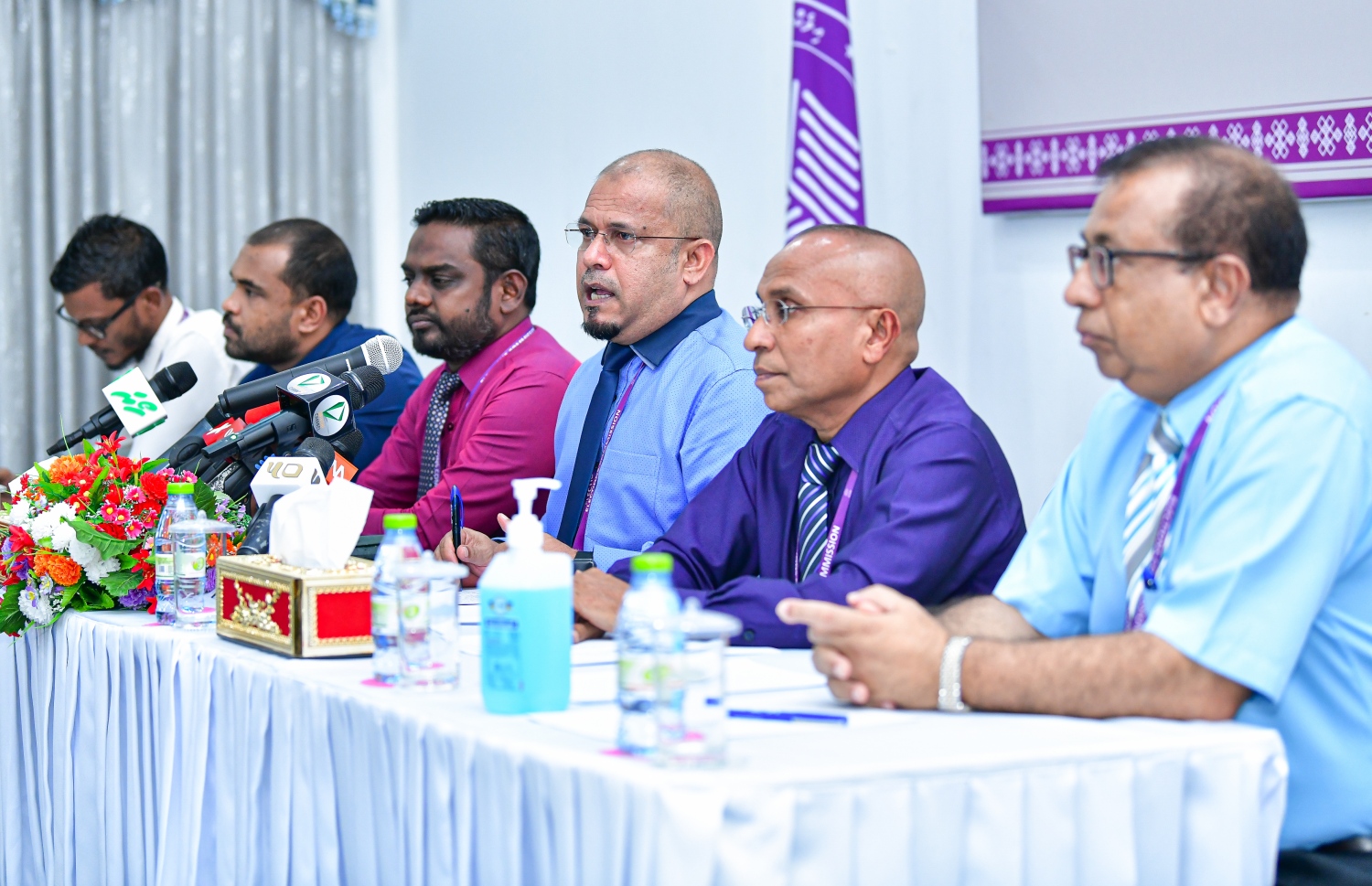
In response to Health Protection Agency’s (HPA) declaration of a state of public health emergency on March 12 over the COVID-19 pandemic, Elections Commission on March 13, announced its decision to delay the local elections to April 18, citing concerns over public safety if an election were to be held amidst the virus outbreak.
The elections body then lodged a case at the High Court on April 15, seeking an indefinite delay on the polls.
After withdrawing the case from the High Court, the elections body then submitted the case to the apex court before it withdrew once again and submitted the matter to the parliament, seeking a legislative remedy to postpone the elections over public safety concerns.
Maldives’ capital Malé, one of the most densely populated cities in the world, has recorded a significant increase in COVID-19 since recording its first local transmission on April 15. A Maldivian woman who sought assistance from a flu clinic in Malé after developing symptoms tested positive for the virus.
The Health Protection Agency (HPA) on April 29 announced the decision to extend the greater Male' region lockdown for an additional 14 days over an increase in COVID-19 cases reported in the capital, following which the Ministry of Health on April 30 extended the state of public health emergency until the end of May.
Maldives presently records 835 confirmed cases of COVID-19 with 804 active cases and 3 deaths. Capital city Malé, one of the most densely populated places in the world, has recorded a significant increase in COVID-19 since it recorded its first local transmission of the virus on April 15.
The World Health Organization (WHO) has classified the spread of COVID-19 as a global pandemic. The new strain of novel coronavirus has infected over 4.1 million people and claimed over 280,400 lives around the world. However, out of those infected, 1.44 million people have recovered.
